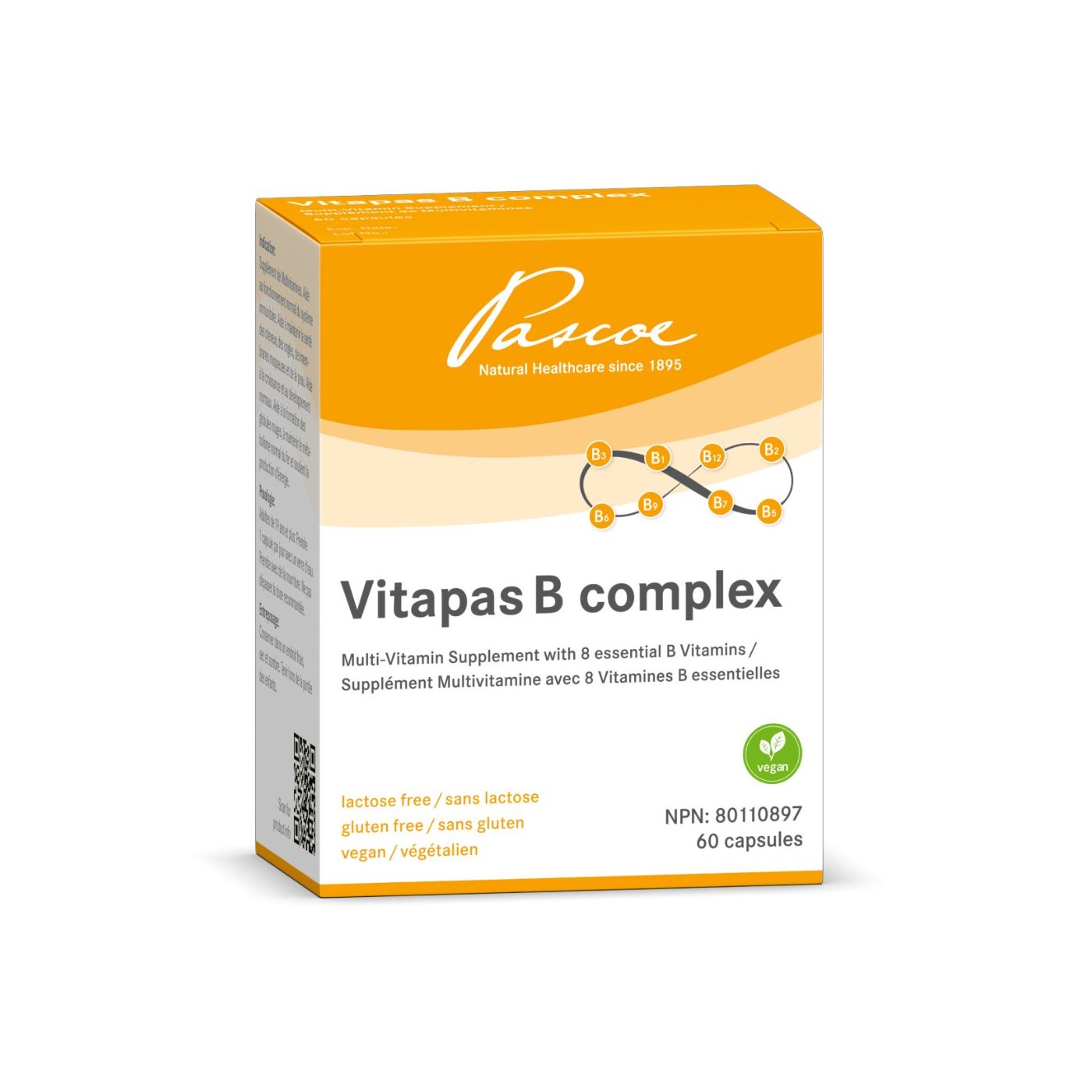What is a Vitamin B Complex?
Food sources are traditionally one of the best ways to get our vitamins and minerals. But sometimes vitamin supplements can have added health benefits to our already balanced diets.
Supplements come in a variety of forms including multi-vitamins and mineral supplements, but what is a vitamin b complex used for?
Vitamin B complexes play an essential role in promoting and maintaining good health on a cellular level. They are seen as the building blocks to support essential functions in our body. This includes brain and nervous system function, energy levels, metabolism, red blood cell formation and a healthy immune system.
Vitamin B complex supplements often include the main B vitamins including vitamin B1, B2, B3, B5, B6, B7, B9 and B12. Each B vitamin has its own benefits, but is most beneficial when used together in a complex. B complexes are recommended daily, with the optimal amount of vitamins to support overall health and well-being.


Vitamin B Complex supplements for everyday use:
Vitamin B supplements can be safely taken everyday, due to B vitamins being water soluble. This means that the vitamin amounts not required are dissolved in water and eliminated through urine. This makes Vitamin B complexes a safe product for everyday use when following the recommended daily amounts.
Taking a B complex on a daily basis can help to improve energy levels, nerve function, healthy eyesight, brain function, growth of red blood cells, good digestion and overall healthier cells.
Vitamin B complexes with folic acid are essential to our everyday health and are not only limited to individuals who are pregnant. Folic acid is the synthetic form of folate, found in many foods, known as Vitamin B9. Folic acid plays an important role in cell development and DNA synthesis, routinely recommended in pregnancy.
Folate plays an important role in the synthesis of red blood cells, white blood cells and platelets. This makes folic acid an important nutrient regardless of pregnancy. Folic acid deficiencies are often masked or mistaken for B12 deficiencies, due to similar symptoms.
Benefits of B complexes:
- Increase energy and reduce fatigue
- Reduce stress
- Stimulate healthy cell growth and development
- Supplement diets lacking in B vitamins (deficiencies)
- Vitamin B6 helps to promote a healthy immune system
- Provide the body with coenzymes for amino acids
- Promote a healthy nervous system and brain health
What is the role of Vitamin B in food sources and supplements?
Many food sources contain nutrients, vitamins, minerals and other substances that help fuel our bodies. Most vitamin Bs are easily absorbed from foods such as eggs, meats, fish, dairy, fortified breakfast cereals, nuts and seeds and fruits and vegetables.
Although many of us eat a variety of these foods and follow a well balanced diet, supplements play a key role in achieving recommended daily amounts consistently. Vegan diets often lack nutrients found in meats, especially B12, and should be supplemented appropriately with both food sources and supplements.
Foods containing B vitamins:
B1: peas, bananas, oranges, nuts and whole grain breads
B2: milk, eggs, fish, plain yogurt
B3: meat, fish, wheat flour and eggs
B5: chicken, beef, liver and kidneys, avocado and eggs
B6: pork, chicken, turkey, bananas, peanuts, soya beans, oats, milk, some fortified breakfast cereals
B7: nuts, seeds, egg yolks and avocados. Biotin is found in very low levels in foods, but is made naturally in your bowel
B9 (folate): broccoli, brussels sprouts, leafy greens, peas, chickpeas, and kidney beans
B12: meat, fish, milk, cheese, eggs, some breakfast cereals
Each B vitamin plays a different role in the body, with one not being more important than the other. B vitamins have different recommended daily amounts and that is why B complexes are optimized with each nutrient and recommended amounts.
Most of the B vitamins cannot be stored in the body, which requires you to consume these essential nutrients everyday. Recommended daily amounts can be achieved through both foods and supplements. It is important to only take high doses of B vitamins when prescribed by a doctor.
Vitamin B12 Deficiency:
One of the most common B vitamin deficiencies is a vitamin b12 deficiency.
Individuals who are at increased risk for B12 deficiencies include older adults, individuals with gastrointestinal disorders, individuals with pernicious anemia, vegetarians and vegans.
B12 deficiencies and folate deficiencies often look the same. That is why a B complex with both folate (folic acid) and B12 is an important part of your daily routine.
It is fairly uncommon for individuals to experience severe vitamin deficiencies in this part of the world. But, other common deficiencies include vitamin B6 and B9 (folic acid) deficiencies.
Signs and symptoms of B12 deficiency:
- Fatigue
- Lethargy (lack of energy)
- Headaches
- Pale skin
- Heart palpitations
- Loss of appetite and possible weight loss
- Tingling or numbness in hands and feet
- Change in mood
- Muscle weakness and possible loss of coordination
If you think you might have a vitamin deficiency or serious health concerns speak with your healthcare professional for proper diagnosis and treatment.
Disclaimer
Pascoe Canada does not offer health or medical advice as we are not a healthcare practitioner. Please speak with your healthcare practitioner before beginning any program related to nutrition, diet, exercise, fitness, medical, and/or wellness. All content published by Pascoe Canada is developed through collaborating with licensed medical professionals and contributors. This includes text, graphics, images, and other material on the website, newsletter, and products (“Content”). This content is for informational purposes only and does not constitute medical advice. The content does not substitute professional medical advice, diagnosis, or treatment. Please always do your own research on whether this is for you along with your healthcare practitioner advice. Always consult your healthcare practitioner prior to using specific herbs because you might have underlying conditions that need professional care. The content is general in nature and is subject to change. It is not intended to cover all possible uses, directions, precautions, warnings, drug interactions, allergic reactions, or adverse effects.


